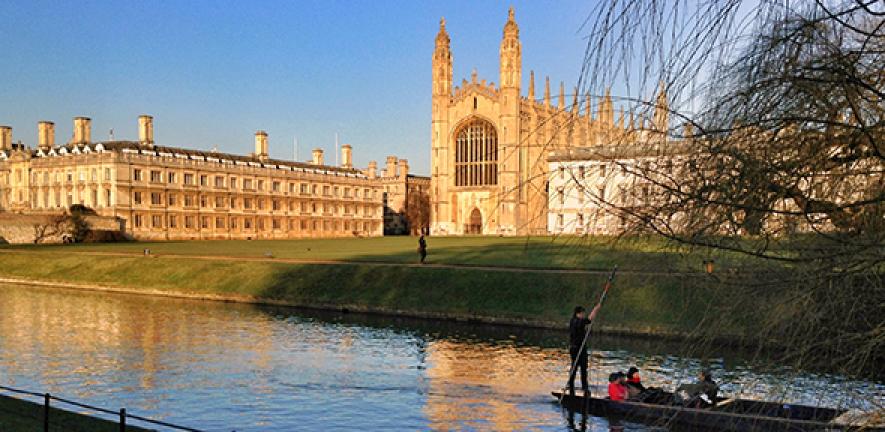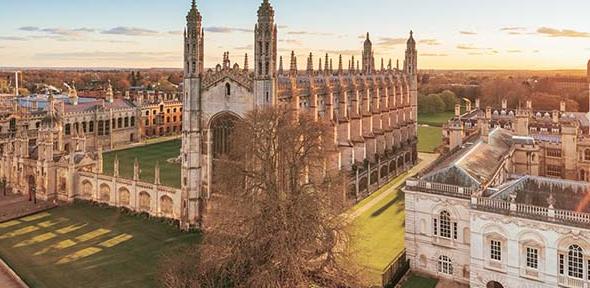The University of Cambridge is one of the world’s most prestigious educational institutions. With a rich history spanning over 800 years, Cambridge has consistently shaped global knowledge, culture, and innovation. Its impact can be seen in nearly every field, from science and technology to politics, arts, and social sciences. So, what makes this university stand out among the world’s elite? Let’s explore its history, academic excellence, and student life to understand why Cambridge remains a global leader in higher education.
History of the University of Cambridge
The University of Cambridge was founded in 1209, making it the fourth-oldest university in the world. It began as a small group of scholars who left the University of Oxford after a dispute. Over time, Cambridge grew into a thriving academic community, attracting some of the brightest minds in Europe.
Key Historical Milestones include the establishment of several colleges in the early centuries, with Peterhouse (founded in 1284) being the oldest. The university played a significant role in the Renaissance, the Enlightenment, and the scientific revolution, producing luminaries like Isaac Newton, Francis Bacon, and Charles Darwin.
By the 19th and 20th centuries, Cambridge had solidified its reputation as a research powerhouse, contributing significantly to advancements in science, mathematics, and the arts.
Colleges of Cambridge
Cambridge operates on a collegiate system, which means it’s composed of several autonomous colleges, each with its own distinct identity and traditions. There are currently 31 colleges, and they form the backbone of student life, offering accommodation, social activities, and academic support.
Notable Colleges include:
- King’s College, famous for its chapel and choir.
- Trinity College, which has produced more Nobel Prize winners than any other college in the world.
- St John’s College, known for its beautiful architecture and vibrant academic community.
Each college may differ in terms of size, culture, and resources, but they all provide a strong sense of community within the larger university.
Academic Structure
Cambridge offers a wide range of undergraduate and postgraduate programs across disciplines. Its academic structure is divided into six schools, including Arts and Humanities, Biological Sciences, Clinical Medicine, Humanities and Social Sciences, Physical Sciences, and Technology.
The university is renowned for its cutting-edge research and innovation, particularly in fields like natural sciences, engineering, medicine, and economics. Research at Cambridge often crosses disciplinary boundaries, creating a collaborative environment that fosters groundbreaking discoveries.
World-Class Faculty
A hallmark of Cambridge’s global appeal is its faculty. Some of the world’s most famous scholars have taught or studied here, including Isaac Newton, Stephen Hawking, John Maynard Keynes, and Charles Darwin. The faculty’s contribution to global knowledge is unparalleled, with numerous Nobel Prize winners, Fields Medalists, and other top academic awards.
The university often hosts visiting scholars from around the world, providing an environment of constant intellectual exchange and collaboration.
Student Life at Cambridge

Being a student at Cambridge is about more than just academics; it’s about becoming part of a centuries-old tradition of learning and intellectual growth. Students have access to a range of student organizations, societies, and clubs. These groups span every interest imaginable, from rowing to poetry.
The daily life at Cambridge is shaped by the city’s tranquil beauty, where students can enjoy historic architecture alongside cutting-edge modern facilities. It’s a vibrant community where students from all over the world come together, contributing to a diverse and dynamic atmosphere.
Extracurricular Activities
Cambridge is known for its strong tradition of extracurricular activities, particularly in sports and the arts. The famous Boat Race against Oxford University is one of the most anticipated sporting events of the year, while the university also excels in cricket, rugby, and rowing.
The arts scene is equally lively, with numerous opportunities to engage in music, drama, and visual arts. Students can perform in one of the many plays put on by the Footlights (a famous comedy group) or sing in the world-renowned King’s College Choir.
Admission Process
Cambridge is one of the most selective universities in the world, with a rigorous admission process. Undergraduate applicants must go through a highly competitive selection process, which includes interviews, entrance exams, and high academic standards.
For postgraduate admissions, the process varies by program but generally requires academic excellence, research proposals (for PhDs), and in some cases, professional experience.
International students make up a significant portion of the student body, and Cambridge actively recruits talented individuals from all over the world.
Financial Aid and Scholarships
Studying at Cambridge is expensive, but the university offers various forms of financial aid and scholarships to help students cover their costs. Several scholarships are specifically geared toward international students, such as the Gates Cambridge Scholarship, which is awarded based on academic merit and leadership potential.
The university also provides financial support to domestic students, ensuring that talented individuals can attend regardless of their financial background.
Library and Resources
The Cambridge University Library is one of the largest and most famous libraries in the world, with over 8 million books and manuscripts. It has been a repository of knowledge for centuries, playing a crucial role in global scholarship.
In addition to the main library, there are many specialized libraries for subjects like law, medicine, and theology, providing students with the resources they need for in-depth research. The university also offers a wide range of digital resources and online learning tools.
Research Impact
Cambridge’s contributions to research and innovation are monumental. Some of the world’s greatest scientific discoveries were made here, including DNA’s structure, the development of the computer, and breakthroughs in physics and mathematics.
Cambridge collaborates with global industries, governments, and other universities to push the boundaries of human knowledge.
Notable Alumni
The list of notable alumni from Cambridge is endless. Among the most famous are:
- Isaac Newton, the father of modern physics.
- Stephen Hawking, whose work on black holes revolutionized astrophysics.
- Winston Churchill, former Prime Minister of the UK.
Other notable figures include literary giants like Virginia Woolf and E.M. Forster, and political leaders like Jawaharlal Nehru, India’s first Prime Minister.
University Rankings and Reputation
The University of Cambridge consistently ranks among the top universities in the world. It is celebrated not just for its academic rigor but also for its reputation across fields like medicine, law, and business. For many, it remains the ultimate symbol of academic prestige.
Challenges and Future Outlook
Like any institution, Cambridge faces its own challenges, including issues related to diversity, accessibility, and modernization. However, it has laid out several initiatives aimed at improving these areas while maintaining its academic excellence.
Looking forward, Cambridge is focused on addressing global challenges like climate change, public health, and technological advancement.
Conclusion
The University of Cambridge stands as a beacon of academic excellence, research, and global leadership. Its rich history, coupled with a commitment to innovation, ensures that it will continue shaping the future of education and human progress for centuries to come.
FAQs
- How hard is it to get into the University of Cambridge?
Admission is highly competitive, with a rigorous process that includes interviews, exams, and high academic standards. - What are the most popular courses at Cambridge?
Popular courses include Engineering, Law, Natural Sciences, and Medicine. - Does Cambridge offer online degrees?
While Cambridge offers some online courses, it does not yet offer full degrees online. - How diverse is the student population at Cambridge?
Cambridge has students from over 140 countries, creating a vibrant international community. - What is the typical student experience like at Cambridge?
Students experience a blend of academic rigor and rich extracurricular activities, all within a historic and inspiring setting.
